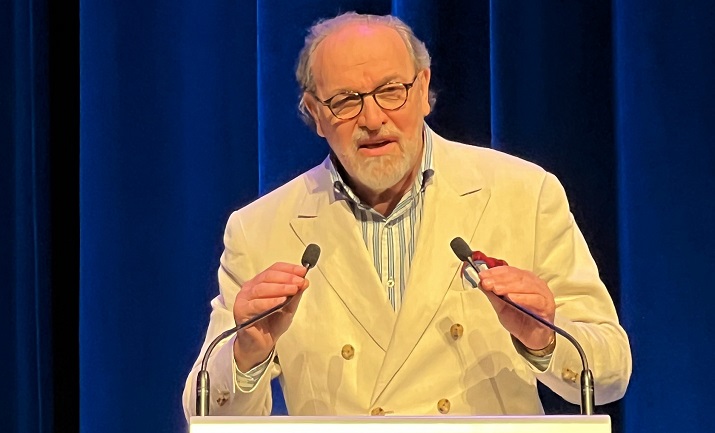Congratulations to Professor Gerald Watts

Each year the Cardiac Society of Australia and New Zealand (CSANZ) presents the R T Hall Prize.
It is the most prestigious research award of CSANZ and recognises the achievements of senior and established investigators. It’s aim is to recognise sustained and outstanding research achievement which advances knowledge of the cardiovascular system and its diseases – based on most of the work having been undertaken in Australia or New Zealand.
Last weekend, it was awarded to Professor Gerald Watts at a prestigious ceremony on the Gold Coast.
A Winthrop Professor of Cardiometabolic and Internal Medicine at the University of Western Australia and Senior Consultant Physician at Royal Perth Hospital, he said he was both humbled and honoured to be presented with “such an illustrious award”.
Gerald said that to him, the award was the culmination of years of work and focus on research which started more than 35 years ago when he was a Senior Registrar in the London Teaching Hospital and lecturer in medicine at the University of London.
He stressed that was very indebted to his clinical and academic mentors both in the UK and Australia, and in particular the familial hypercholesterolaemia network. Referencing Isaac Newton, Gerald said “if I have seen further, it is by standing on the shoulders of giants.”
CSANZ said it awarded the prize to him for his long term commitment to research – for the betterment of patient care.
“Over the course of the last 25 years, he has established a globally recognised translational research program in Perth, which has extended his fundamental interest in dyslipidaemia and diabetes to developing world class models in health service delivery,” the audience at the event was told.
“He published the seminal paper outlining the importance of lipid lowering in the regression of angiographic disease in an era prior to the use of more advanced arterial wall imaging.
“His work has also enabled a fundamental understanding of the clinical and pharmacological factors that influence lipoprotein metabolism and he has played a pivotal role in the early development of a number of novel therapies that target cardiometabolic risk.
“And in recent years, he has led national efforts to develop effective, multidisciplinary clinical models of care for familial hypercholesterolaemia and associated research and training initiatives.”
The President of the Cardiac Society of Australia and New Zealand, Prof Clara Chow, presented the award to Gerald.

